You’ve just brought your puppy home, now It’s time to carefully establish a strong bond with your puppy. With a combination of love, trust, and respect, you may develop a close bond with a puppy of any breed. There will be problems in the relationship if even one of these is lacking. One of your biggest questions might be, “How to bond with my puppy? Here are some easy ways to bond with your puppy to gain their trust and love.
Table of Contents
Benefits of Bonding with Your Puppy
The need for company is among the most popular reasons individuals have a puppy! There is no doubt that the bond between dogs and people is unique. It’s enjoyable to be able to play with, train, and explore the world with your new puppy. And the sooner you can bond with your puppy, the simpler it will be to talk to, care for, and have fun with them.
Your puppy will experience growth surges during the first few months and develop a favourable mental association network with the people and surroundings. As you train your puppy, play with them, teach them to listen to you, and generally engage with them on a daily basis, be patient with them.
1. Maintain Communication with Your Puppy
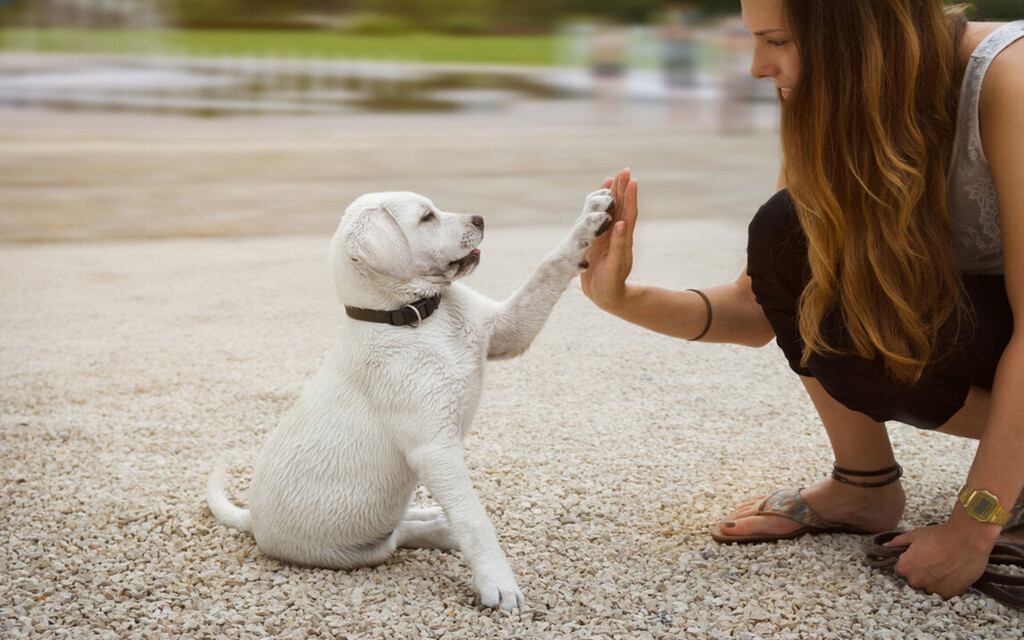
How to Bond with New Puppy
Although puppies are unable to understand human speech, they can be trained to understand specific terms used in obedience instructions. They constantly pick up on our energy, body language, and emotions.
An eager puppy can be soothed by neutral, steady speech, as can more agitated puppies.
Introduce your puppy to food luring, create eye contact, teach them to remember their name, and have them respond to your calls to begin teaching them the fundamentals of communication.
2. Set Boundaries for Your Puppy

Bonding with 6-Month-Old Puppy
Boundaries are necessary for puppies to comprehend household norms. Having clear boundaries with your puppy promotes a stronger connection between you two as their leader and someone they continue to look to for guidance.
Without limits, allowing your puppy to freely explore the house, sit on the furniture whenever they choose, and generally act whenever they please, might result in undesirable behaviours, making these puppies more prone to encounter problems. Two of the most typical puppy difficulties new parents deal with when their dog is allowed to wander freely are unwanted chewing and accidents in the potty.
Using baby gates to keep your puppy out of particular rooms in the house or in a designated location where you can readily watch them will help you set boundaries while they are still learning.
3. Make a Daily Puppy Schedule
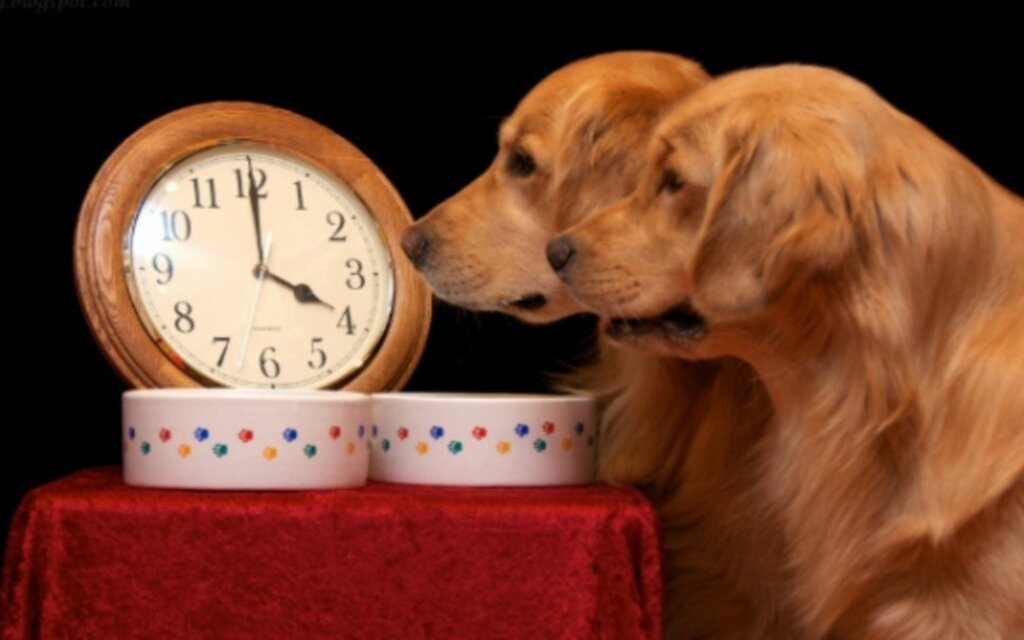
How to Get Your Puppy to Bond with You
A young puppy is attempting to comprehend and fit in with their new environment and family after they move into their new home for the first time. A daily programme immediately gives your dog’s life more structure!
The quickest approach to get your dog on track is to establish routines. They are crucial for helping with potty training, supporting healthy food, developing generally excellent conduct, and strengthening your bond with your child. Your puppy will be able to relax more readily knowing that all of their requirements will be satisfied throughout the day if they are on a schedule and are aware of what is coming up next.
The major components of planning your puppy’s daily routine include meals, playtime, toilet breaks, and nap times. For your puppy to really get the idea of being a member of the family, try to stick as closely as you can to your regular schedule.
4. Play with Your Puppy
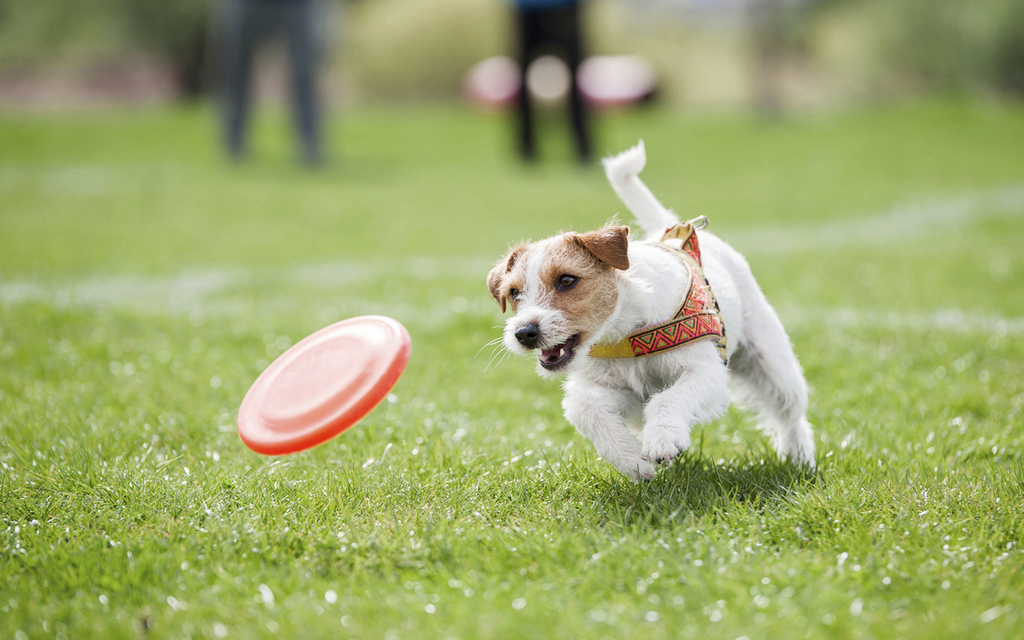
Playtime is the best thing you can do to strengthen your relationship with your puppy. While some pups are ready to play the moment they enter your home, others take some time to get used to their new surroundings. Therefore, keeping their favourite snacks or goodies close at hand can encourage them to play with you. A few games double as puppy training exercises in addition to being fantastic ways to spend valuable time!
“Hide and Seek,” “Tug,” and “Fetch” are a few of our favourite interactive games that will strengthen your relationship!
By first hiding in plain sights, such as diving behind a couch or door while your puppy is observing, you can teach your puppy the game of “Hide and Seek” by calling their name and rewarding them with food or treats when they come to you. This makes it easier for them to develop the habit of going to you whenever you call and desiring to come to you when you call! As they improve, you can start to be more inventive with your hiding spots to increase the difficulty and enjoyment for your puppy.
Your puppy can learn to listen to you and initiate play by playing tug with you. Additionally, it’s enjoyable to connect with them by feeling their energy on the other end of the pull toy.
Another fantastic constructive activity to do with your dog to reinforce your communication while teaching him to return to you is fetch.
Each of these activities helps a puppy learn that you’re a really entertaining person to be around while also stimulating their brain. Your puppy will look forward to the following time they get to spend more time with you because of these types of quality play sessions!
5. Exercise with Your Puppy
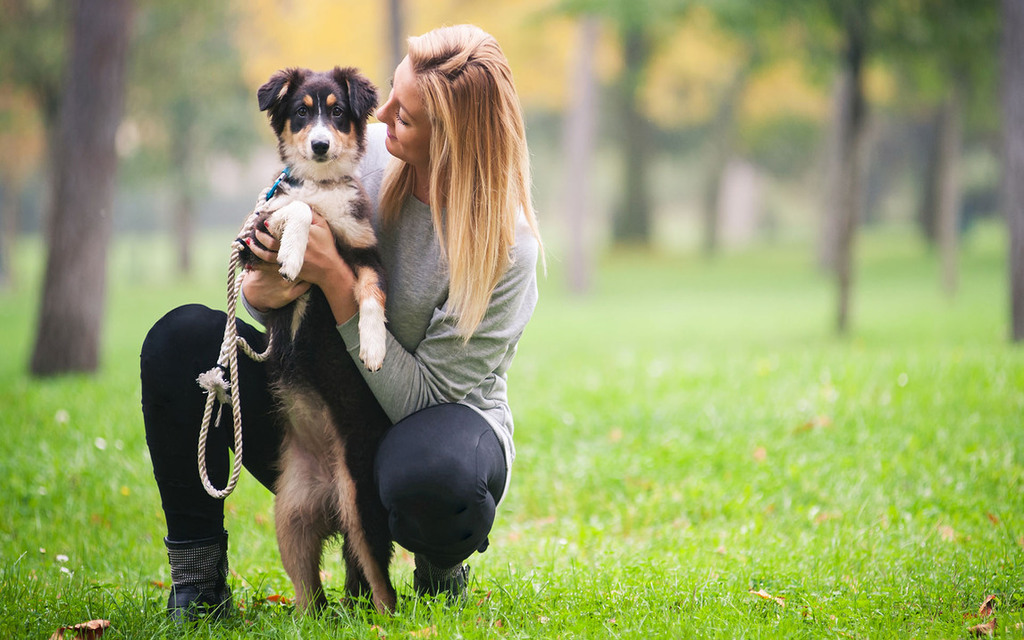
Go on walks and play outside with your dog to spend more time together and get some much-needed exercise!
Puppies and dogs benefit from routine physical and mental activity much as their human parents do. Boredom can cause an undesirable gnawing, digging, and general puppy antics, as well as other disruptive activities. Furthermore, obesity, diabetes, weak bones and joints, difficulty breathing, and other canine ailments are all greatly influenced by a primarily sedentary lifestyle.
Although there are many advantages to exercise, everything should be done in moderation! Puppies can be quite energetic, but too much exercise can harm their developing joints and increase their stamina, making them need more and more exercise in the future.
Start out by progressively acclimating your dog to outdoor walks in your yard or driveway, and as their concentration and walking skills advance, gradually increase the distance to your neighbourhood.
You’re training your puppy to focus on you and always look to you for the next thing they should be doing by teaching them to heel and including obedience command sessions during your walks. This swiftly strengthens your bond.
6. Beginning the Puppy Training
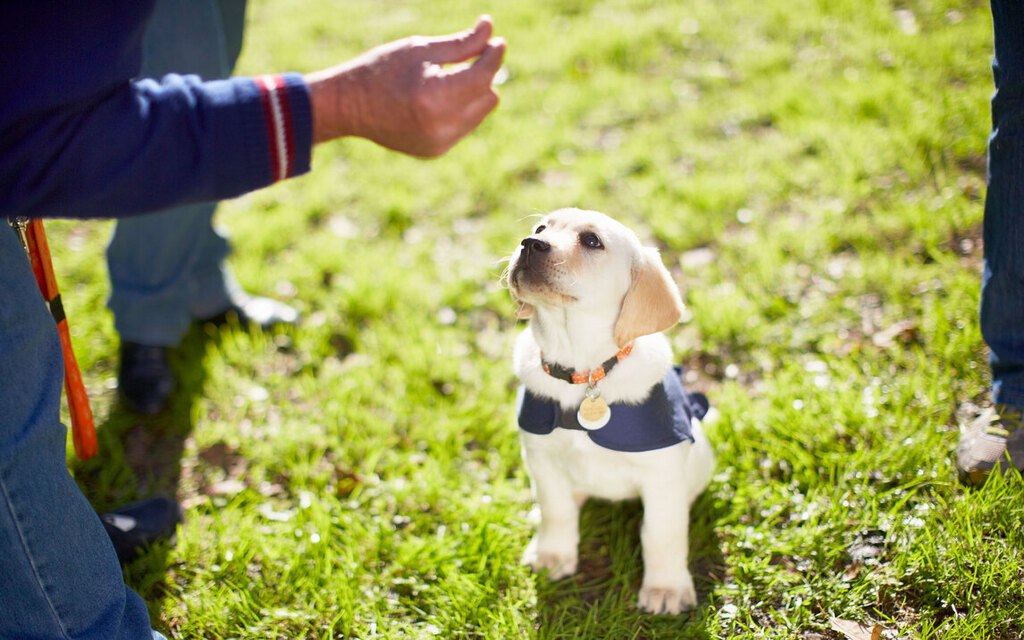
A crucial component of developing a bond with your puppy is creating a language to communicate in. Training in adherence to commands is a simple method for accomplishing this!
One of the nicest experiences that will make you feel even closer to your puppy is being able to ask them to do something and having them comprehend and comply. Moreover, pups enjoy working! You and your dog will be able to communicate more effectively by using obedience command routines, and your dog will feel more fulfilled thanks to the mental and physical exercise they’ll receive as a result.
7. Give Your Puppy Their Personal Space
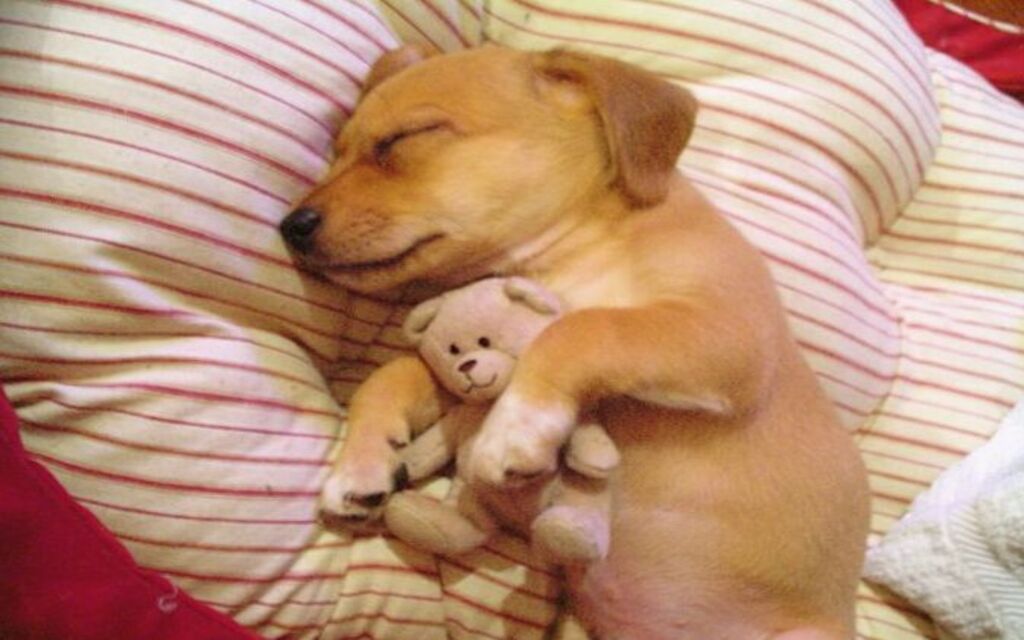
A young puppy could initially find the sights, noises, smells, and faces of a new environment to be a little overwhelming. It’s crucial to remember to give our new puppies their own space and alone time away from us while we forge this fantastic attachment with them so they may feel safe and secure but also avoid developing separation anxiety!
A fantastic approach to achieve this is by setting up a crate for your puppy to unwind in away from the chaos of the house and family members. Your puppy will be able to acquire some independence while still feeling safe and secure in there, helping them become well-mannered adult dogs.
8. Build Trust through Touching and Cuddling
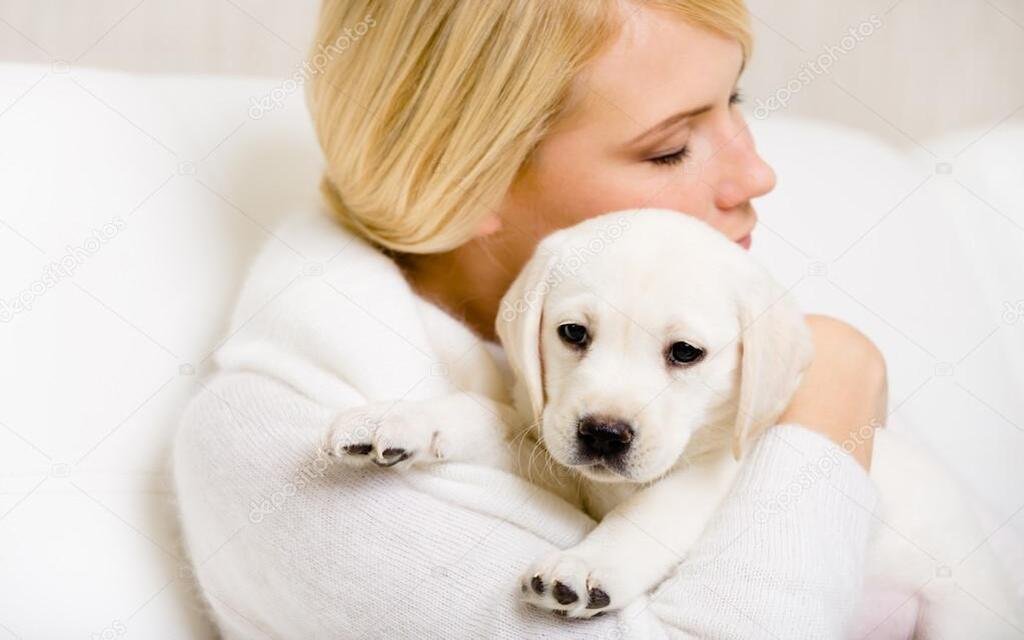
When you do this, including some fundamental puppy handling techniques may help your bond become even stronger. This entails getting your puppy accustomed to having its ears, lips, nose, legs, paws, belly, tail, and behind touched.
When they are tired is the ideal time to do this. Give your dog some of their food in one hand while starting to touch these regions with the other slowly and softly. Reward them when they allow you to. Instead of caressing them, which can stimulate and excite them, you can massage your puppy to help calm them. This may be more calming for them.
Frequently Asked Questions
1. What do your dog’s five love signals mean?
- Delicate eye contact
- Wags its tail
- Cuddling
- Pleased greeting
2. Do puppies develop strong emotional bonds?
It’s not surprising that dogs may feel uncomfortable or stressed when away from their owners because they have a specific chemistry with people and frequently build attachment relationships with them. Although it might appear that puppies are more susceptible to stress and terror, the contrary is actually true.
3. How much time does it take to develop a strong attachment with a puppy?
Puppies typically bond with their owners more quickly than adult dogs because they have fewer attachments to their histories with previous owners. If you purchased a puppy from a breeder, it typically takes 3–3 months to form a bond with your dog.
4. How can you tell whether you and your puppy have become close?
A dog that has a genuine emotional connection with you is impossible to mistake. They have a genuine twinkle in their eyes and create strong eye contact while grinning and rubbing against you. They cheer up, become energetic, and may even express their happiness verbally when you get home.
5. Who will the puppy connect to the most?
However, most dogs tend to form close relationships with the person who pays them the most attention. For instance, in a household with two parents and two children, the dog might choose the parent who gives them water in the morning and walks them in the evening. The link between a dog and a person is also strengthened by physical affection.
6. How old do puppies start to get attached to their parents?
Your dog will mature emotionally at some point between one and one and a half years of age. Larger dogs may take a little longer to get there than smaller canines. Your dog has the emotional maturity of a two- to a three-year-old human child at this point. They are thus capable of experiencing happiness, fear, wrath, and love.
7. Does sleeping with a dog build the bond strong?
You and your dog can become closer by spending time together in a peaceful environment like the bed. Replicating that experience with your dog is a wonderful way to strengthen your relationship with them because dogs are packed creatures and will frequently sleep together in a puppy pile when they can.
8. How much time does a puppy require to be cuddled?
Nevertheless, as a general rule, dogs should spend at least two hours each day in social interactions with people or other dogs. This amount of time can be divided up throughout the day.
9. How can I tell if my puppy dislikes me?
A dog that doesn’t like you very much won’t actually stay around when you visit. In addition to ignoring you and avoiding eye contact, they can simply leave the room.
10. What do dogs adore the most?
Puppies crave tactile attention, and they will go to their favourite persons to get it if they want it. While you’re seated on the couch or the floor, they might lean against you. It’s a method for them to express how secure they feel with you.
11. How do puppies decide who they prefer?
Based on previous positive contacts and socialisation, dogs select their favourite people. Puppies up to 6 months old are in their critical socialisation period because, like humans, dogs are extremely impressionable as their brains develop.
12. Do puppies enjoy being kissed?
It’s okay if the dog has grown accustomed to receiving head kisses. However, the reality is that some dogs just don’t enjoy being kissed.
13. How do you train a stubborn puppy?
Engage your dog in brief training sessions throughout the day to reinforce desired behaviour. Simply asking your dog to do a desired behaviour, such as sitting or down, and then rewarding him for doing so with goodies, play, stroking, or walks will accomplish this.
14. How can you calm a hyperactive puppy?
Try making a loud noise, such as clapping your hands, a loud “uh-uh,” or a crisp “off,” if you see your puppy acting inappropriately. Remind yourself that reprimands must be given during the behaviour, preferably just as it starts, and never after.
Image credit: Yandex.com
Also Read: How Do You Train a Dog to Poop Outside




